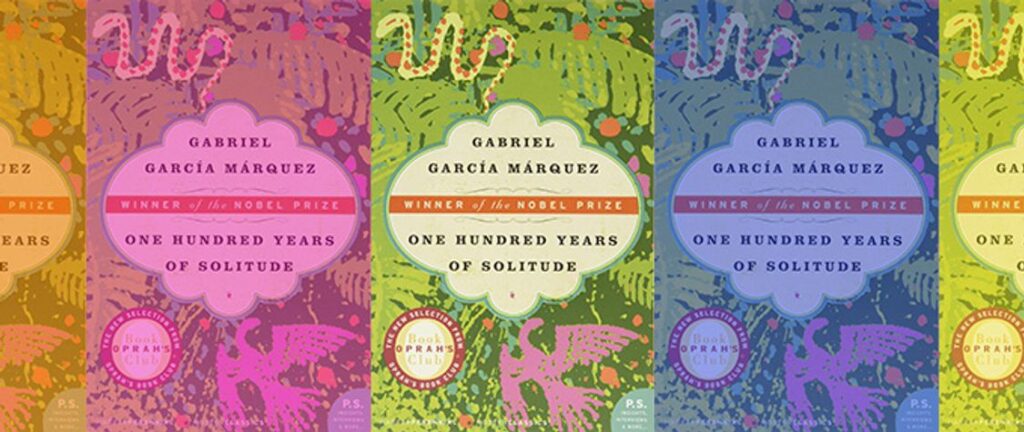Gabriel García Márquez’s One Hundred Years of Solitude is a timeless and beloved classic that has captivated readers around the world with its evocative and powerful storytelling. Set in the fictional Colombian town of Macondo, the novel tells the story of the Buendía family and their struggles over the course of several generations.
Through its complex and layered characters, vivid and evocative prose, and thought-provoking themes, One Hundred Years of Solitude offers a wealth of insights and takeaways that continue to resonate with readers today. Here are the 10 biggest takeaways from this classic work of literature.
The Power of Storytelling
One of the most striking aspects of One Hundred Years of Solitude is the way in which García Márquez uses storytelling as a means of exploring and understanding the world. From the very beginning of the novel, the characters are shown to be deeply invested in the power of stories, and they use them as a way of making sense of their own lives and the world around them. Through the generations, the Buendía family tells and retells the stories of their ancestors, and in doing so, they are able to gain a greater understanding of their own place in the world.
The Cyclical Nature of History
One of the central themes of One Hundred Years of Solitude is the idea that history has a tendency to repeat itself. Throughout the novel, the Buendía family is shown to be caught up in a series of cyclical events, with each generation experiencing the same joys and sorrows as their ancestors. This repetition serves to underscore the idea that history is not necessarily a straight line, but rather a series of cycles that repeat and evolve over time.
The Importance of Family
Another central theme of One Hundred Years of Solitude is the importance of family. The Buendía family is shown to be deeply interconnected and reliant on one another, and their relationships are a key driving force behind the events of the novel. From the love and loyalty of the family members to the conflicts and rivalries that arise, the novel serves as a testament to the enduring power of family bonds.
The Role of Magic and the Supernatural
García Márquez is known for his use of magical realism in his writing, and One Hundred Years of Solitude is no exception. Throughout the novel, the characters encounter a range of supernatural and magical events, from levitation to visions of the future. These events serve to underscore the idea that the world is a mysterious and unknowable place, and that there are forces at work beyond our understanding.
The Corrupting Influence of Power
One Hundred Years of Solitude explores the theme of power and its corrupting influence, particularly through the character of Colonel Aureliano Buendía. As the novel progresses, the colonel becomes more and more isolated and paranoid, and his power ultimately leads to his downfall. This serves to underscore the idea that unchecked power can be dangerous and destructive.
The Tragedy of War
Another major theme of One Hundred Years of Solitude is the tragedy of war. Throughout the novel, the characters are affected by various conflicts, from civil wars to international skirmishes, and the toll that these wars take on the people of Macondo is palpable. The novel serves as a powerful reminder of the devastating effects of war on individuals and communities.
The Power of Love
One Hundred Years of Solitude explores the theme of love in all its forms, from romantic love to the love between family members and friends. Throughout the novel, the characters experience a range of loves, both positive and negative, and these experiences serve to underscore the enduring power of love to shape and transform our lives. From the passionate love affair between Remedios and Aureliano to the enduring bond between Ursula and José Arcadio, the love stories in the novel serve as a reminder of the many ways in which love can enrich our lives.
The Resilience of the Human Spirit
Despite the many challenges and hardships faced by the characters in One Hundred Years of Solitude, they are shown to be incredibly resilient and capable of enduring and overcoming even the most difficult of circumstances. From the early generations of the Buendía family, who forge a new life in the jungle, to the later generations who survive wars and revolutions, the characters demonstrate a remarkable ability to persevere and adapt to whatever life throws their way.
The Search for Identity
Throughout the novel, the characters of One Hundred Years of Solitude are shown to be struggling with questions of identity and belonging. As they navigate the complex and changing world of Macondo, they are forced to confront their own values, beliefs, and desires, and this process of self-discovery serves as a central driving force behind the events of the novel.
The Passage of Time
One of the most striking aspects of One Hundred Years of Solitude is the way in which it captures the passage of time. From the early generations of the Buendía family to the later ones, the novel spans several centuries, and the changes that the characters experience are palpable. Through the use of magic and the supernatural, García Márquez is able to create a sense of timelessness that underscores the idea that time is a fluid and ever-changing force.
Other ways people asked this question:
- Top 10 Takeaways from ‘One Hundred Years of Solitude’
- Lessons from Gabriel García Márquez’s ‘One Hundred Years of Solitude’
- Key Themes and Takeaways from ‘One Hundred Years of Solitude’




















